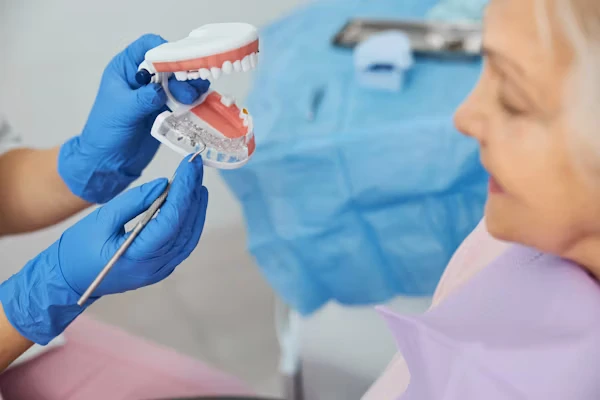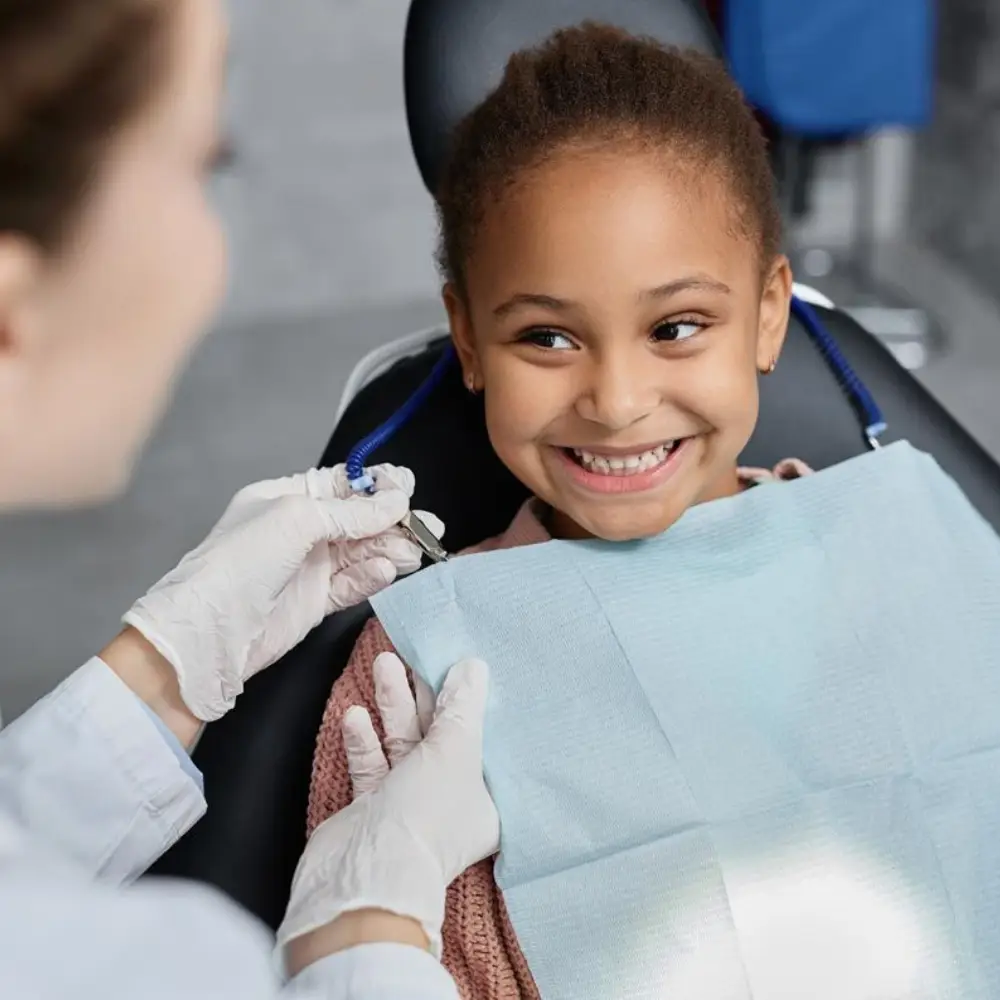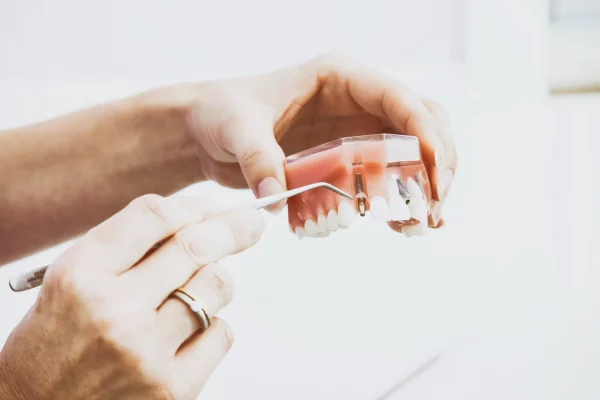A complete smile is only part of what dental implants can give you. They also give you the strength and stability required to lead a full, confident life. Dental implants will not limit your lifestyle, whether you indulge in your favorite foods, you talk in front of a crowd, or you keep up with your fitness regime. Dental implants are constructed differently in such a way that they can work and feel like natural teeth unlike in the case of removable dentures or traditional bridges, where you will have to have the peace of mind in each step that you take.
Are you in need of something that can be used to last long, which is a combination of form, functionality, and freedom? Then you might just be in need of dental implants.
Why Active Adults Choose Dental Implants Over Removable Options

The active adult is fast adopting dental implants as the solution to missing teeth, and they are not ready to be sidelined by the loss. You are a runner, a cyclist, a weekend hiker, or simply like to keep physically active, the last thing you want is to be concerned about slipping dentures or not eating certain foods because of the bite strength. Dental implants are a permanent, stable option that will not only give you back your smile but will also enhance your lifestyle, on your conditions.
To the person who lives a dynamic life, dental implants give the ability to move, eat, speak and do without restrictions. Why are dental implants the best choice of adults who desire to be strong, mobile and confident? Let us have a closer look.
Stability During Sports and Daily Physical Activity
The last thing you want to happen when you are in the middle of the workout, training session, or even running errands is that your dental appliance shifts. The implants are directly fitted into the jawbone, and this provides stability that cannot be compared to dentures and bridges. It has no slipping, no clicking and no adhesive pastes. You can be dead lifting weights or just laughing with your friends on a long walk, but the implants will not fall out, so you can concentrate on what is happening, not on your mouth.
No Risk of Slippage Like Traditional Dentures
Implants are not just resting on the gums and held by suction or adhesives like dentures, but they are part of your body and this process is called osseointegration. This implies that they are bonded to your jawbone, thus forming a platform as strong as natural roots. This stability is not negotiable with athletes and highly active people. You do not need to be inhibited in movement or to skip certain exercises because you are afraid of slipping. You can live life to the fullest and you can bite and smile with confidence.
How Dental Implants Support a Confident, Active Lifestyle
Dental implants not only help you in enhancing your oral performance but also increase your self-esteem. When you are not concerned about a missing tooth in the smile or the sound of the denture when you chew or talk, you walk differently. You are more open-mouthed. You laugh more frequently.
To those who are determined to remain social, physical and emotionally active, implants offer form and functionality and are an obvious choice in order to continue living a quality life.
Performance and Nutrition Benefits of Dental Implants

It is not only the matter of having good muscle strength and spending long hours in the gym, but rather, it begins with the ability of the body to metabolize fuel. It is not only what you eat, but the way you chew. Good chewing helps in breaking down the food effectively to initiate the digestion process and enable your body to absorb nutrients quicker. Energy production, muscle repair, and general stamina require good digestion, and you need the base to help you perform your best, whether it is a workout in the gym or a busy day of work.
Biting Power for High-Protein and High-Fiber Diets
Meat, nuts, and legumes, which are high in protein, and vegetables and fruits that are high in fiber, necessitate good chewing power. Dentures may curtail your diet, but with implants you get back to around 100% of your natural biting force. This means you can keep on consuming the foods that fuel your workouts and feed your body without a sacrifice.
How Full Mouth Function Supports Fitness Goals
When your teeth work as they are supposed to, all other things follow: the digestion process, the nutrient absorption, hydration, and even your possibility to talk clearly in the middle of a workout or a group fitness session. It is interrelated. Dental implants can restore full-mouth functionality, and you will have the basis to attack your fitness goals.
Long-Term Implant Health and Energy Maintenance
Implants are not just another way to get your smile back, but they also help to stabilize the structure of your face and jaw. The implants stimulate the bone tissue and help avoid bone loss that may result in fatigue, stooped posture and, with the progression of time, facial collapse. These physical changes are not only cosmetic, they may also impact the way you breathe, the way you move and the level of energy you have during a day. When you get implants, you do not only invest in teeth, you save your stamina, alignment, and confidence, which maintain you active.
Implants vs. Dentures for Athletes and Active Seniors
The choice between implants and dentures is usually a lifestyle decision, and when it comes to people who want to remain active, age gracefully and do their best work, the distinction is hard to ignore. The stability, strength, and freedom of movement that the implants provide, cannot be compared to the traditional dentures, so they are the most popular choice among people who value their health, performance, and confidence in every age.
Comfort and Durability in Physically Demanding Situations
Dental implants are constructed in such a way that they can resist the daily wear and tear and even more demanding circumstances. Whether in the game of pickleball, yoga or even on the mountain, you will not experience sore gums or even be concerned about friction as you would with dentures. The implants are immovable and do not cause friction, which is more comfortable in the long term.
Minimal Maintenance and Fewer Dental Visits
After the healing process, the dental implants are a part of your life and you do not have to work any harder to take care of them. All you have to do is brush, floss, and maintain your routine dental cleanings. That is all it takes. On the contrary, dentures usually require constant care, such as frequent adjustments, refittings, adhesives, and nightly soaks. The convenience of implants is obvious to individuals with busy lives, those who travel a lot or those who are to-the-point about health. You have permanent utility without the inconvenience of day to day use.
Why Implants Are Preferred for High-Mobility Lifestyles
Do you travel constantly out of a suitcase, do you dedicate hours to training, or do you live off the freedom of last-minute weekend getaways? In that case, dental implants are designed to fit your lifestyle. The fact that they are permanent implies that you will not have to carry denture adhesives, special cleaning agents, or lose a case. You get up, get going, and take your day, with the power, protection, and naturalness of real teeth. Implants do not only help you to stay healthy, but also to get in motion.
Caring for Implants When You’re Always on the Go
Active lifestyle does not imply that you should neglect oral hygiene, on the contrary, it should be streamlined and travel-friendly. You do not have to carry a suitcase of supplies or a ritualistic routine with dental implants. It only requires a toothbrush, floss, and some consistency. Whether it is jet-setting at work, fitting in a workout between meetings or going out on a last minute weekend hike, oral care can be simple, effective and consistent, just like your routine.
Oral Hygiene Tips for Travelers and Gym Enthusiasts
When you are on the go and you want to keep your implants clean, make sure to bring a travel-sized toothbrush and toothpaste in your gym bag or carry-on, that way you will be prepared to brush up in a moment. To get rid of sugars and acids that might stick to the teeth, rinse your mouth after protein shakes or snacks with water or alcohol-free mouthwash.
To clean more thoroughly, interdental brush or water flosser can be used to clear the debris around the implant crowns. And not least, remember to keep your body hydrated as your saliva is very important in keeping your implants safe and in keeping the plaque build up to a minimum through natural means.
Best Implant Cleaning Tools for Active Users
Invest in compact tools that fit your lifestyle, such as:
- Portable electric toothbrushes with travel cases
- Battery-powered water flossers for deep cleaning
- Travel-sized floss threaders for implant bridges
- Antimicrobial rinse tablets that dissolve in bottled water
These small habits protect your investment without slowing you down.
Emergency Care: What to Know if You Experience Trauma
Accidents may occur- even when you are exercising lightly or doing daily activities. In the event of a fall or a blow on the jaw you should not panic. Although dental implants are incredibly powerful, a trauma may affect the surrounding tissues or the crown itself. In case of any pain or looseness, begin by rinsing it softly using warm salt water to make the area clean. Use a cold compress to reduce swelling and call your dentist immediately to get a complete examination.
Do not attempt to realign or repair anything on your own, as most of the problems can be easily handled at the early stage and a dental expert can ensure that your implant and bone are stable and healthy.
Frequently Asked Questions (FAQs)
1. Are implants safe for people who play contact sports?
Yes, dental implants are safe and durable for athletes even those involved in contact sports like football, boxing, or martial arts. Their strength and stability make them a reliable option for active individuals. However, protection is key. Wearing a custom-fitted mouthguard is essential to safeguard your implants, natural teeth, and jaw from impact. It’s a simple yet smart investment that can prevent serious injury. Whether you’re training or competing, don’t skip this step in protecting your smile.
2. Can I travel or hike right after implant surgery?
It’s best to wait until your dentist confirms initial healing before jumping back into travel or intense activities. For short trips, this usually means waiting about 7 to 10 days, while more rigorous physical activity may require 3 to 6 months of healing time. This window is critical because your implant needs to fuse properly with the jawbone—a process known as osseointegration. Rushing it could compromise long-term success. Once your dentist gives the green light, you’re free to move, explore, and push your limits with confidence, knowing your implants are stable and secure.
3. Do implants require special care for athletes?
Caring for dental implants as an athlete doesn’t require anything beyond normal oral hygiene, but you may need to be a bit more mindful. Intense workouts, heavy breathing, and frequent consumption of sports drinks can lead to dry mouth or increased sugar exposure. That’s why staying hydrated and thoroughly cleaning your mouth is essential. Stick to brushing twice a day, flossing daily, and rinsing after sugary drinks or protein bars. If you tend to clench your jaw during training or sleep, using a nightguard can protect both your implants and natural teeth from wear.
4. What if I damage my implant while working out?
If you experience trauma or sudden pain around your implant, it’s important to contact your dental provider immediately. Most often, the issue affects the crown or abutment rather than the implant post itself. Prompt attention can prevent complications and make repairs easier. In the meantime, avoid chewing on the affected side and stick to soft foods if necessary. Your dentist will guide you through the appropriate next steps to ensure proper healing and long-term implant success.
5. Are implants better than dentures for an active lifestyle?
Absolutely. Dental implants offer unmatched stability, comfort, and long-term reliability compared to traditional dentures. They stay firmly in place, no slipping during workouts, no messy adhesives, and no need to remove them at night. You can eat what you want, speak clearly, and move confidently. For active adults who prioritize freedom and independence, implants are a smart, health-supporting choice that keeps up with every part of your lifestyle.
Call to Action
You’ve worked hard to stay active, eat well, and live fully. Your smile shouldn’t hold you back. Dental implants offer the strength, comfort, and confidence you need to keep moving forward, whether you’re in the gym, on a trail, or traveling the world.
Schedule a consultation today with a dental implant expert. Let’s explore whether implants are right for your active lifestyle, review your options, and create a treatment plan that keeps you strong, confident, and unstoppable. Your next adventure starts with a solid foundation, begin with dental implants.


